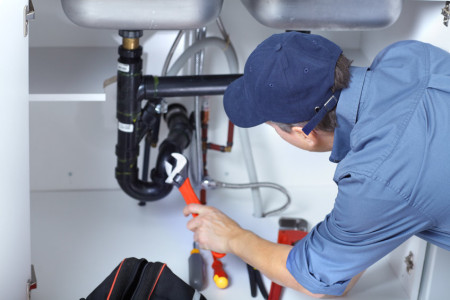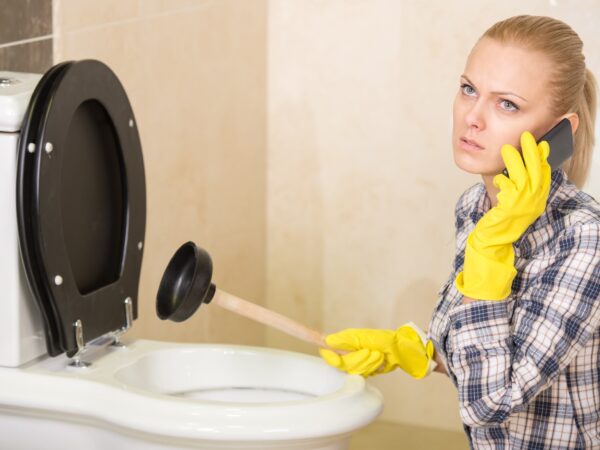This great article below in relation to Expert Tips for Emergency Plumbing Repairs is rather engaging. Don't miss out on it.

Plumbing emergencies can strike any time, triggering stress and prospective damage to your home. Whether it's a ruptured pipe, a clogged drainpipe, or a leaking tap, understanding how to take care of the circumstance until an expert plumbing gets here can save you from further issues. This short article gives vital emergency pipes pointers to assist you mitigate damages and regain control throughout a plumbing dilemma.
Turn Off the Water System
The primary step in any pipes emergency is to turn off the water supply. For localized problems, such as a dripping faucet or commode, turn off the shutoff near the fixture. When it comes to a significant leak or ruptured pipe, situate your home's primary water shut-off valve and transform it off instantly. Recognizing the location of these valves ahead of time can save useful time throughout an emergency.
Shut down Your Water Heater
In specific emergency situations, such as a burst pipeline, it's a good idea to shut down your water heater. This protects against overheating or damages to the device when water stops streaming. Turn off the power supply to the hot water heater (electrical or gas) and let it cool to avoid prospective hazards.
Briefly Quit a Burst Pipeline
A burst pipe can bring about significant water damages in mins. To mitigate the issue:
Call an expert plumbing professional promptly to resolve the trouble permanently.
Have an Emergency Pipes Package
Prepare a basic plumbing emergency situation package to handle minor problems successfully. Your package must consist of:
Having these tools handy can make a substantial distinction in your ability to take care of emergency situations.
Unclog Drains Pipes Securely.
A clogged up drainpipe can be an irritating and unpleasant concern. Below's just how to tackle it:.
If these approaches don't work, avoid making use of too much pressure, as it may worsen the clog.
Take Care Of Overflowing Toilets.
An overruning bathroom can create prompt turmoil. Right here's what you ought to do:.
Address Small Leaks with Short-lived Repairs.
Little leaks can promptly become substantial issues if left unattended. Use these short-lived repairs until specialist help gets here:.
While these solutions aren't permanent, they can aid reduce water loss and damages.
Handle Frozen Water Lines Carefully.
In chillier environments, frozen pipelines are a common emergency. If you believe a frozen pipeline:.
Know When to Call a Professional.
While quick fixes can aid temporarily, specific pipes issues call for immediate expert focus. Call a plumbing if:.
Promptly contacting a professional guarantees the concern is resolved correctly and avoids additional difficulties.
Prevent Further Damage.
Taking fast activity to minimize damage can save you money and time in the future. Below's how:.
Final thought.
Plumbing emergencies can be frustrating, yet with the appropriate knowledge and tools, you can manage the situation efficiently up until assistance shows up. By shutting off the water system, attending to little leakages, and making use of momentary solutions, you can decrease damages and maintain your home safe. Keep in mind, these ideas are momentary options; constantly seek advice from a certified plumbing to deal with the source of the problem. Preparation and quick reasoning are your ideal allies in any kind of pipes emergency situation.
8 Helpful Tips for Managing Plumbing Emergencies at Home
If your plumbing system hasn’t failed once, wait for it because almost everyone has a story to tell. Sometimes, it could be simple emergencies such as a leaking pipe, a blocked cistern, or even a big burst pipe. In situations like this, you need to have some handy tips to save you some money and from possible damages.
Take care of minor issues early.
Sometimes, you could have avoided an emergency by taking proactive measures while it was still early. Some major plumbing emergencies can be a result of an ignored minor issue. We recommend that you have items like plumbing tapes and other related items. A plumbing tape can allow you to manage minor leaks before the plumber arrives.
Cut off the water supply.
This tip is essential in almost any type of leakage problem. For problems like minor leakages in the toilet or kitchen, turn off the supply that takes water to the affected pipes. If the leakage is a major pipe, you must shut off the supply valve to the entire building. This will help you avoid flooding your home and neighbors if you share a flat.
Know your plumbing system
Folks typically move into a new apartment without understanding the water supply around the building. This can prove disastrous if a water emergency arises and the plumber is far away. The previous tip will prove useless if you don’t practice this one. More importantly, know where your water shut-off valve is located – you’ll need that knowledge to prevent potential home floods.
Have some common handy tools
There are lots of plumbing emergencies that you can handle without hiring a plumber. That’s why you must keep some tools available always. Some tools that you can use to fix simple plumbing emergencies easily include plumbing tapes, screwdrivers, thread seal tapes, plungers, pliers, tape measures, and rubber gloves.
Insulate your pipes from cold
You’ll save yourself from many plumbing expenses if you protect your water pipes from the cold. This is because of the harmful effects that cold weather can have on your pipes. During winter, your pipes can burst from being overly expected to freezing temperatures. So, make sure insulators are there to keep the pipes working correctly.
Avoid practices that will clog your toilet.
Many people indulge in practices that can damage the plumbing system of the entire building. One of these is when they use their toilet to dispose-off garbage. They flush all kinds of things, such as paper towels, bandages, hairs, female sanitary products, etc., down the toilet. This will block your toilet in the long run, incurring unnecessary expenditures. Dump such waste in the trash instead.
Check your dials regularly.
Sometimes, there could be leakages in your home without noticing them in time. So, constantly monitor your water meter dial. If the dial is reading when there is nobody using water, this is an indicator that there is leaking. Check for leaks immediately. Call a plumber as soon as possible if you can’t find any.
https://www.constructionplacements.com/8-helpful-tips-for-managing-plumbing-emergencies-at-home/

Hopefully you enjoyed our section on Expert Tips for Managing a Plumbing Emergency Until Help Arrives. Thanks a ton for taking a few minutes to read through our piece. Sharing is caring. You never know, you may just be helping someone out. Kudos for being here. Please come visit our website back soon.
Free Estimates